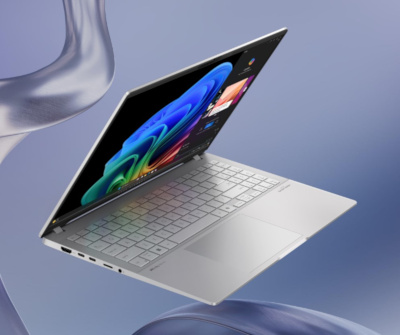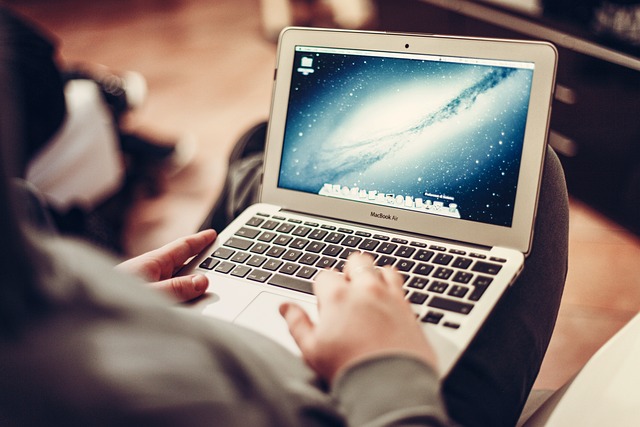What to Know About Buying a Laptop for School
Buying a laptop for school can help you stay connected and mobile at once

When buying a laptop for school it's important to consider several factors so that you make sure you're going to get the right brand and model to suit your needs. This guide aims to help with just that, so you can then check the best laptops guide to find the perfect machine for you.
Find the right laptop and you can stay mobile while carrying around all the power of a device potentially capable of letting you do whatever you need. That applies to teachers and students alike. So from word processing and presentations to image editing and gaming, the options are broad with plenty of laptop choices out there. This guide should help to narrow these down specifically for your needs.

What's it for?
When buying a laptop for school it's important to first consider what it is going to be used for. By knowing this you can better determine what features it will need to have and those that are less important -- so you don't waste money on specifications you may never use.
So is this a laptop for students, teachers, or both? And will it be for school use only or for personal use, too? In all cases, since you're considering a laptop, it's likely you want this to be a mobile device, so considering how long the battery lasts will be an important part of that as it may otherwise limit your mobility and freedom to move.
If this is simply for word processing and some light web-browsing, then going for a less powerful and more affordable option may suit you just fine. But once you start considering uses such as gaming, video and image editing, or heavy file manipulation, it might be worth investing more in processing power.
Also consider the operating system, as one that works with your school could make life easier, be that Windows, Chrome OS, or macOS.
Display
Since everything on your laptop is viewed via the screen, that display quality can be an important consideration. That said, if you're going to be constantly outputting to a projector or interactive whiteboard display, then perhaps the laptop screen itself will get little use.
Tools and ideas to transform education. Sign up below.
Since the screen can vary price considerably, make sure you know what you need. A larger display can make working on spreadsheets or multiple windows at once easier. But that also means spending more, often losing battery life, and costing you upfront for that extra display space.
If you plan to use this for watching movies and/or gaming, you may want to consider higher resolutions, HDR support, and refresh rates as factors. Just expect to pay a lot more as these features get added into the setup.

Speed and storage
For the fastest response time, least waiting for loading, and best possible multitasking, you'll want more processing power and RAM. Simply put, the more these numbers go up, the more that price tag increases. So be clear on what you actually need.
Unless you're gaming or video editing, a more entry-level setup could be just fine. That means something such as an Intel i3 or i5 processor paired with 8GB or 16GB of RAM should be enough.
If you are going to use this for gaming or intensive processing, then you may want to take a graphics card into consideration, too. Smaller and more portable laptops have graphics processing integrated, usually, so this may be more than a price jump but also a size increase, should you wish to add that independent graphical processing unit as well.

Connectivity
A laptop is fantastic for keeping you portable but if you can't connect to displays and other devices as needed it can become less useful. This is why connectivity should be a consideration.
Primarily, you'll want to think about wifi as this connects you to the internet and any school network options. Wifi 6 and above should have you very able in most situations for top speeds and widest connectivity compatibility.
Bluetooth can also be useful as a way to wirelessly connect to external devices such as headphones, projectors, speakers, and more. Bluetooth 5.0 or newer will be more than enough to have you connected to nearly any device and to do so while keep battery drain to a minimum.
Also consider your ports, with options to output using cables and flash drives for sharing files or connecting to an external display, without the need for wireless connectivity. It's also worth thinking about the charger type so you can assess if you'll need to carry a charger about with you or if it will work with what the school already has available.
Pricing
The cost when buying a laptop for school can vary massively depending on what you need. Spending more can mean a laptop that lasts you longer, since the processing power is greater and potentially the brand more reliable than going for a cheaper pick. So spreading that higher cost over a longer time is also worth keeping in mind.
Do you need a laptop or a 2-in-1 that can be used as a tablet with a touchscreen as well? This can impact the price considerably so if you don't need the extra features then save that extra money for pure processing power increases instead.
You may also want to consider other costs beyond the laptop itself including a laptop bag, a mouse and keyboard, and perhaps a headset.
Luke Edwards is a freelance writer and editor with more than two decades of experience covering tech, science, and health. He writes for many publications covering health tech, software and apps, digital teaching tools, VPNs, TV, audio, smart home, antivirus, broadband, smartphones, cars and much more.
